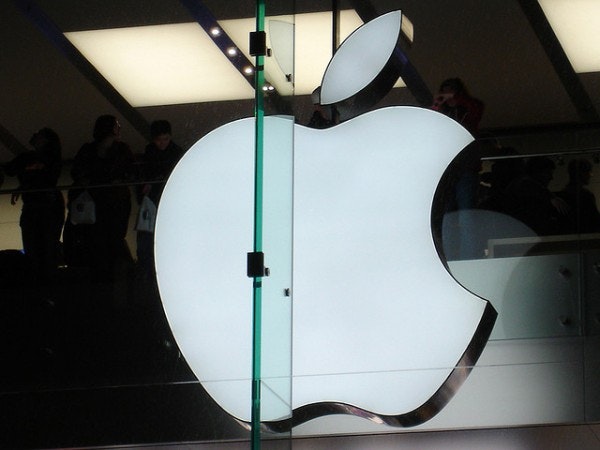When it comes to ecosystem depth and apps availability, Apple Inc. (NASDAQ:AAPL) is in a privileged position versus its competitors. Applications and services built by the company are not available to the competition, but Apple still gets most of the apps built by other players. This is not only a reflection of strength, but also a big competitive advantage for Apple when it comes to the long term competition in the mobile business.

What´s Yours is Ours, and What’s Mine is Mine
When consumers buy an Apple product they get several specific apps and services, like Siri, iMessage, iWork, iPhoto and FaceTime, which aren’t available in other devices. Apple doesn´t share its toys with other companies, but competitors like Google Inc (NASDAQ:GOOG), Amazon.com, Inc. (NASDAQ:AMZN) and Microsoft Corporation (NASDAQ:MSFT) are much more friendly with the company founded by Steve Jobs.
Apple users have access to official Google apps like Maps, Search, and Gmail among many others. They can also download apps from Amazon, like several online shopping applications and the official Kindle app. Many applications from Microsoft, like SkyDrive and OneNote, for example, are also available for iOS users. There are some exceptions like Google Wallet and the official version of Microsoft Office which are not available for iOS, but for the most part Apple users get the best of both worlds when it comes to apps.
Needless to say, this is a big advantage for Apple: if you like FaceTime or Siri, then your only alternative is to stay with Apple to have access to them. On the other hand, if you are a fan of Google Maps or YouTube, you can still stay with Apple and enjoy the fantastic apps courtesy of Google Inc (NASDAQ:GOOG).
Different Business Models
One big reason why this happens is that these companies have different business models. While Apple sells integrated hardware and software, Google is a software company that has just recently entered hardware via its Motorola Mobility acquisition. What matters for Google Inc (NASDAQ:GOOG) is to make sure that everyone is using its services so the company can monetize them via advertising–that´s why the search engine builds high quality apps for Apple Inc. (NASDAQ:AAPL).
The same goes for Amazon.com, Inc. (NASDAQ:AMZN): it´s in the online retailer´s best interest to provide good high quality online shopping apps for Apple users so it can sell all kinds of products in IOS devices. Microsoft is in a more complex situation–although it’s trying to make inroads with its Windows phones and Windows 8 tablets, it´s a software company at heart, so it can´t keep its apps completely away from Apple users. In fact, there are strong rumors about an official Office app for iOS coming sometime soon.
The Valuable Apple User
Even if it has been left behind by Android on a global basis, Apple Inc. (NASDAQ:AAPL) is still the market leader in countries like the US, and according to data from several sources, iOS users are more likely to engage in activities like online shopping or watching streaming video.
Maybe it’s due to the fact that iOS devices attract more early adopters, or because they have a customer base with higher average income levels, or perhaps it has to do with design and user experience. Regardless of the causes, usability tends to be higher in iOS products.
Web browsing, watching video or shopping online are activities which are more frequent in iPhones and iPads than on any other device. In fact, Google Inc (NASDAQ:GOOG) is believed to make more money on iOS devices than on Android products, so it´s no wonder that the company makes its best effort to deliver the best possible apps for Apple users.
According to a survey by IBM, iPads and iPhones accounted for nearly 20% of Black Friday online sales, versus a paltry 5.5% for Android devices. This has some clear implications for Amazon when it comes to shopping apps availability.
Bottom Line
Google and Amazon.com, Inc. (NASDAQ:AMZN), and to a lesser degree Microsoft too, have different business models to that of Apple, that´s why it makes sense for them the make their apps available to Apple Inc. (NASDAQ:AAPL) users. Especially keeping in mind that Apple is a leading player and its customer base is particularly valuable because of its high levels of usage.
Apple, on the other hand, is in the business of selling products with integrated hardware and software, so it has no interest in making its apps available to the competition. This puts the company in a fortunate position where it gets access the majority of the apps developed by other players, but can keep the exclusivity with its own apps.
When it comes to the race for the smartphones and tablets markets, having the leadership position in terms of quantity and quality of applications is a big factor. Apple has a remarkable advantage in that aspect, and it could provide considerable leverage for the company and its investors over the next years.
The article Apple Has a Big Apps Advantage originally appeared on Fool.com and is written by Andrés Cardenal.
Copyright © 1995 – 2013 The Motley Fool, LLC. All rights reserved. The Motley Fool has a disclosure policy.


